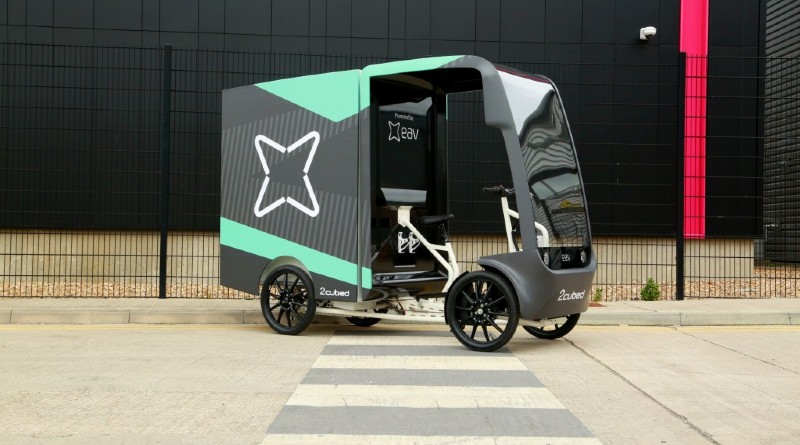EAV chooses hydrogen to fuel e-Cargo bike partnership
Electric Assisted Vehicles (EAV) has announced it has developed a hydrogen fuel cell powered e-Cargo bike as part of a new project with the City of Aberdeen.
The project will be supported by investment from the European Union and the Scottish Government and will be managed by the German Aerospace Center (DLR).
Challenging the notion that battery power is the future, the use of hydrogen fuel cells for sustainable transport is not a new idea, but it has been one that is yet to mature in anything but larger long-distance vehicles. The EU, is however, backing the technology.
Adam Barmby, CEO and Founder of EAV, said: “The use of hydrogen fuel cells in the last or even mid-mile scenario is a very interesting proposition. Within EAV we observe the development of the rapidly growing Electric Vehicle market daily. Apart from our concerns over the weight of the increasing number of battery-powered vehicles, we keep questioning where all these batteries are going to come from?
“We’ve wanted to develop a hydrogen fuel cell option which requires a vehicle to have even less batteries as the electricity comes from the hydrogen reaction which is about as environmentally-friendly as you can get.”
The Interreg North West European Fuel Cell Cargo Pedelecs Project (FCCP) aims to pilot the use of hydrogen fuel cell last-mile delivery vehicles in seven cities across Europe over 12 months from Q3 2021, of which Aberdeen is one beneficiary.
EAV will use its 2Cubed vehicle platform, which is in its third year of development, to run the fuel cell system.
Leo Bethell, Head of Partnerships at EAV, said: “We’re really excited to be working with the City of Aberdeen as a key part of this validation exercise. Every town and city across the globe must now look at significantly reducing emissions and providing a cleaner, safer environment for its inhabitants.
“The COVID pandemic has actually advanced a number of projects to reduce vehicle traffic and reinforce the need for cleaner and safer cities and smaller, lighter urban commercial goods delivery vehicles are vital to that change. This is a technically advanced project and it’s coming to a city which has been at the forefront of advanced engineering in Scotland for the last hundred or so years.”



